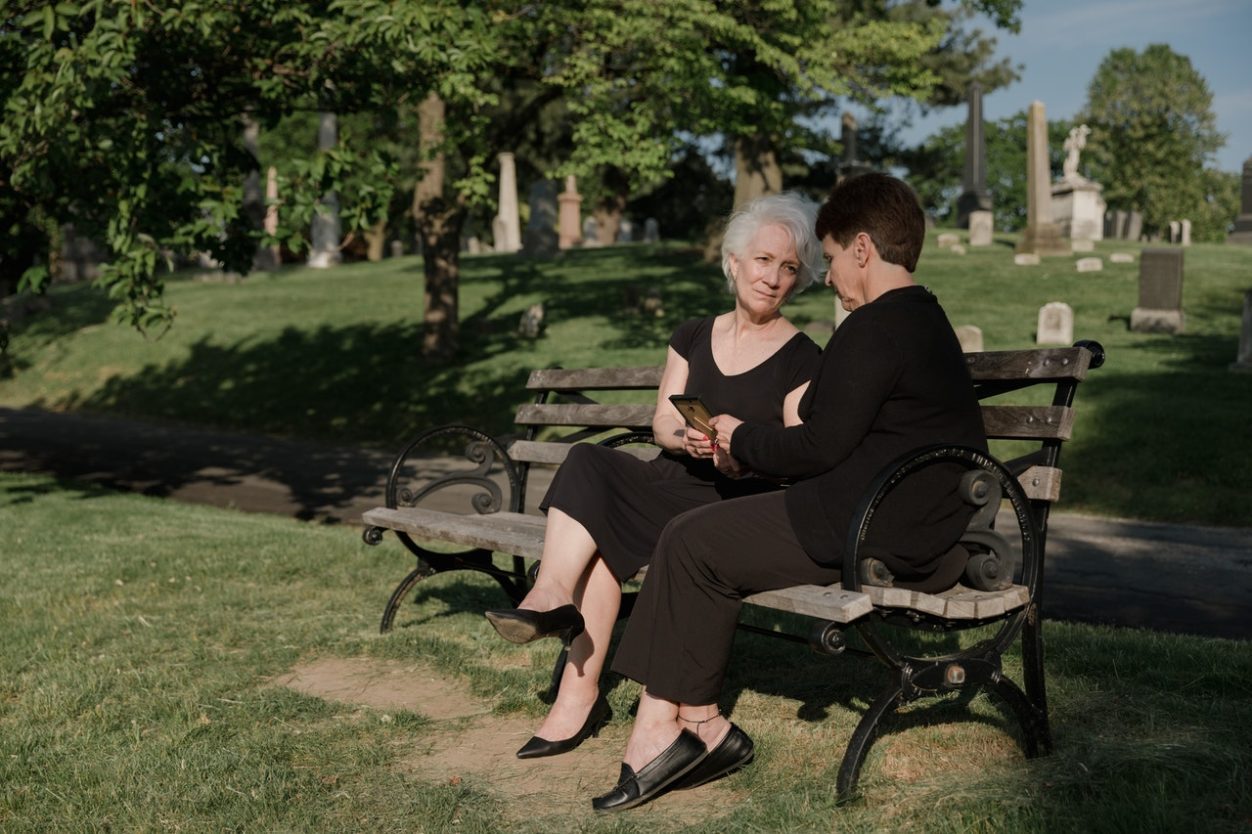Practical advice on how to really help those living with loss.
As an Estate lawyer, I assist individuals and families experiencing grief every day, but it wasn’t until this summer, when I lost my own mother, that I experienced grief deeply and personally, which afforded me a new perspective on grief. Shortly after my loss, friends of mine lost their teenage daughter. My appreciation of the support of my friends and family during my period of grief allowed me to understand the importance of reaching out and trying to offer my friends some support. Determined to try to help, I asked around our community what I could do for them and I was told, “anything would be appreciated, but please, no more lasagna”.
I turned to the internet to learn more about how to support someone in grief. I noticed that many grief experts stress the distinction between offering ‘support’ versus ‘comfort’. Although these two things may sound similar, the ideas of ‘comforting’ and ‘supporting’ have two very different implications as ‘comfort’ implies a desire to free someone from their pain, while ‘support’ implies a desire to provide assistance and help. When we see a friend or loved one living with grief we tend to automatically want to try to ease their pain however, I learned that this is not only impossible, but it interrupts the natural pattern of grief. Experts suggest that it’s best for us to try to support our friend or loved one through their pain.
I read more articles and compiled this list of ways to support a grieving friend: through a willingness to show genuine care and compassion, by being present and actively listening, and providing concrete assistance by helping to meet some of their specific needs during their time of grief. Perhaps this is why traditionally, grieving families are offered acts of service like dropping off lasagna, or offering to help with yard work, because they are useful to the grieving family.
So what if your grieving friend already has half a dozen lasagnas? Here are a few tips I can offer from my experience as an estate attorney and a grieving daughter:
- Anticipate their needs – try to avoid asking “do you need anything”? Pick up the phone and make the call. Your friend will likely not call you because making a phone call to ask for help could be beyond their capacity. Rather than asking make concrete offers like “I will be there at 4 p.m. on Thursday to bring your recycling to the curb,” or “I will stop by each morning on my way to work and give the dog a quick walk.”
- Offer practical help – you can help by lessening the burden of “normal” life demands by assisting with recurring tasks or chores including caring for pets, refilling prescriptions, shoveling snow, yardwork, offering to transport kids or the elderly, running errands, taking out the garbage, doing the laundry. If you do offer to help, be sure to follow through and be reliable otherwise you may add to their stress.
- Work together – offer to help with difficult tasks (like dealing with funeral arrangements or visiting a professional’s office) by working with your loved one and following his or her lead. Be available and present and to help, if asked. Don’t assume that they know what to do next, or that they have everything figured out and don’t hesitate to offer a referral to a trusted professional who can assist them with their difficult tasks.
- Offer to act as point person –the influx of people who want to show their support to a person in grief can be overwhelming to manage. During this intensely personal and private time most families appreciate the assistance of a “designated point person” to relay information to the outside world, to organize and respond to well-wishers, and to act as gatekeepers to afford the family the privacy they need to grieve.
- Educate and advise – when the time is right, remind your friend that death is a cue to re-evaluate the personal, financial and legal status of the surviving members of the family and should prompt replanning for the future. Share that there are plenty of skilled advisors and professionals that can assist the family in navigating all the tasks that surround losing a loved one as well as preparing them for a future without their loved one. Funeral homes have highly skilled staff who assist families not only with funeral arrangements, but help a family with government benefits and notifications to government authorities. Professionals like financial advisors, accountants and lawyers can help with the formal tasks surrounding the estate, as well as help families best prepare for their future.
- Be there – above all be there, be present, show up, listen, and show your love. Say something. Do something. Be willing to stand beside the gaping hole that has opened in your friend’s life with strength and empathy. Be willing not to have any answers and just be there to be leaned on.

